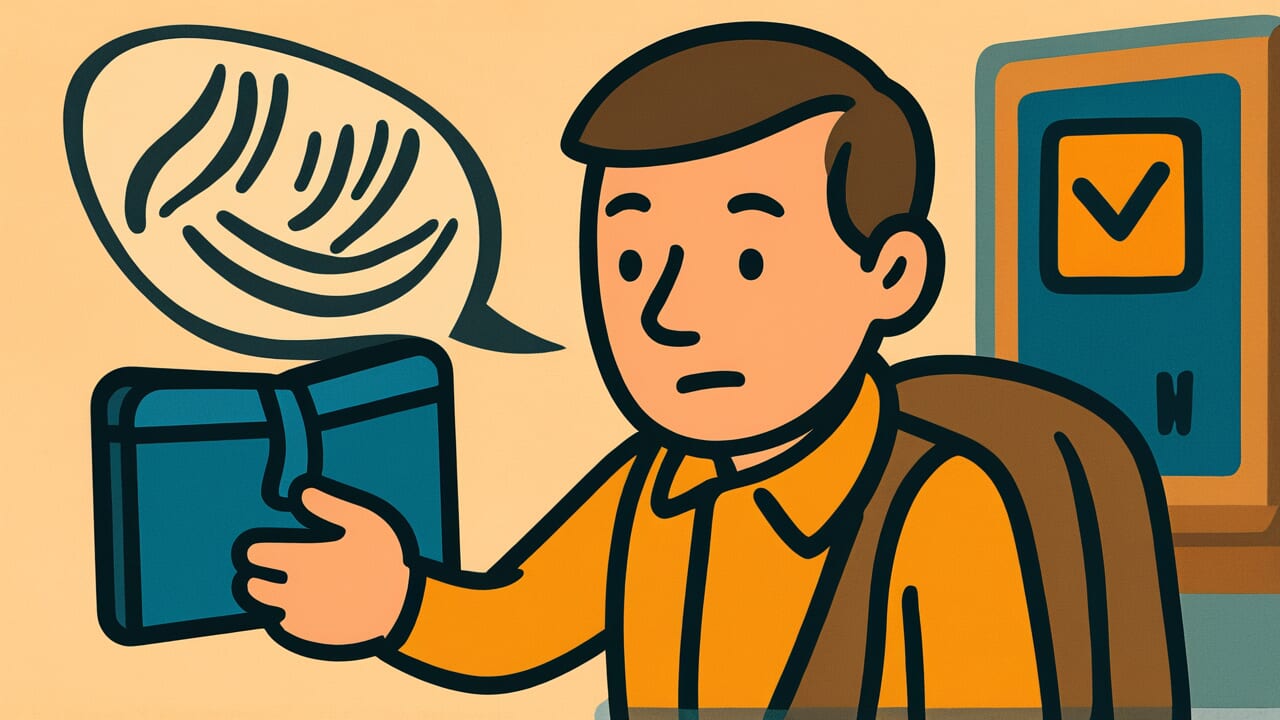How to Read “Don’t show people the bottom of your wallet or the bottom of your heart”
Saifu no soko to kokoro no soko wa hito ni miseru na
Meaning of “Don’t show people the bottom of your wallet or the bottom of your heart”
This proverb teaches that you shouldn’t easily reveal your financial situation or your true feelings to others.
When people know you have little money, they might take advantage of you or treat you poorly.
If you reveal everything in your heart, someone might misuse that information or your relationships could fall apart.
This proverb is often used to teach young or inexperienced people about being careful in relationships.
It reminds us that not everyone approaches us with good intentions. This wisdom has been passed down as a form of self-protection.
Even today, the risks remain the same. Bragging about income or assets on social media can backfire.
Sharing private worries with strangers online carries dangers too.
This proverb teaches us to identify trustworthy people and maintain appropriate boundaries.
Origin and Etymology
The exact origin of this proverb in written records is unclear. However, it likely spread among common people during the Edo period as practical life wisdom.
Notice the clever contrast between two “bottoms”: the wallet and the heart.
Seeing the bottom of a wallet means having almost no money left. The bottom of the heart refers to true feelings and thoughts you don’t show on the surface.
By pairing these two images, the proverb memorably expresses what should stay hidden.
The Edo period saw commerce flourish and money become central to society. At the same time, human relationships grew more complex.
In this changing world, people learned firsthand the dangers of revealing their finances.
They also discovered the risks of exposing their true feelings. These experiences became shared wisdom among ordinary people.
In the merchant world especially, letting business partners know about financial struggles could lead to unfavorable terms.
Revealing too much of your heart could result in exploitation or broken relationships.
These real-life lessons crystallized into this proverb that has survived to our time.
Usage Examples
- A friend taught me “Don’t show people the bottom of your wallet or the bottom of your heart,” so I avoid talking about my salary
- She practices “Don’t show people the bottom of your wallet or the bottom of your heart” and never shares her real worries with anyone
Universal Wisdom
This proverb has endured because it touches on a deep truth about human society.
People tend to unconsciously exploit others’ weaknesses when they discover them. This is simply reality.
Everyone wants to be good, but judgments change when personal interests are involved.
This is both a fundamental human weakness and a survival instinct.
When you see someone struggling with money, the urge to negotiate a lower price emerges.
When you learn someone’s true feelings, you might consider using them as bargaining chips.
These mental movements are natural human responses beyond simple good and evil.
The proverb also hints at power dynamics created by information asymmetry.
The side that knows more about the other always holds the advantage.
Therefore, revealing all your cards puts you at a disadvantage.
Looking deeper, this is also wisdom for protecting human dignity.
When others know about your financial troubles or emotional vulnerabilities, you become an object of pity.
You lose equal standing in relationships. Managing your weaknesses appropriately is a defense mechanism for maintaining pride.
Our ancestors left us this proverb as wisdom for living between ideals and reality.
When AI Hears This
Not showing the bottom of your wallet is strategically maintaining “information asymmetry” in economics.
Consider the used car market. Sellers know the true condition of their cars, but buyers don’t.
Buyers then suspect “this car might be defective” and offer low prices even for good cars.
As a result, sellers with truly good cars leave the market, and only bad cars remain. This is the lemon problem.
What happens when you show the bottom of your wallet? If you have lots of money, people think “I can charge this person more.”
If you have little, they judge “this person has low value.”
Either way, the information works against you.
Having information doesn’t always give you an advantage. Rather, disclosing information hands pricing power to the other party.
The bottom of your heart follows the same structure.
Revealing all your true feelings lets others know your “reservation price”—your absolute bottom line.
In negotiation theory, hiding this reservation price is considered the most important strategy.
This proverb proves that people intuitively understood the disadvantages of information disclosure.
By not showing, you keep others wondering “what if?”
This uncertainty itself becomes a shield protecting your value.
Lessons for Today
This proverb teaches you an important distinction: being open is different from being defenseless.
Modern society sometimes treats transparency and self-disclosure as virtues.
Sharing daily life on social media and expressing emotions has become normal.
However, revealing everything doesn’t necessarily bring good results.
Your financial situation and deep worries are important information to share only with trustworthy people.
This doesn’t mean becoming secretive. It means wisdom for protecting yourself while connecting with others.
Being able to decide who sees what shows true adult independence.
This teaching becomes especially important when you’re struggling.
Carelessly revealing your situation when vulnerable can expose you to reality: not everyone has good intentions.
Seeking help is important, but you also need the calm judgment to choose the right people.
This proverb gives you the power to live wisely.
Cherish those you open your heart to, while also protecting yourself.
This balance is the wisdom for surviving in the modern world.



Comments